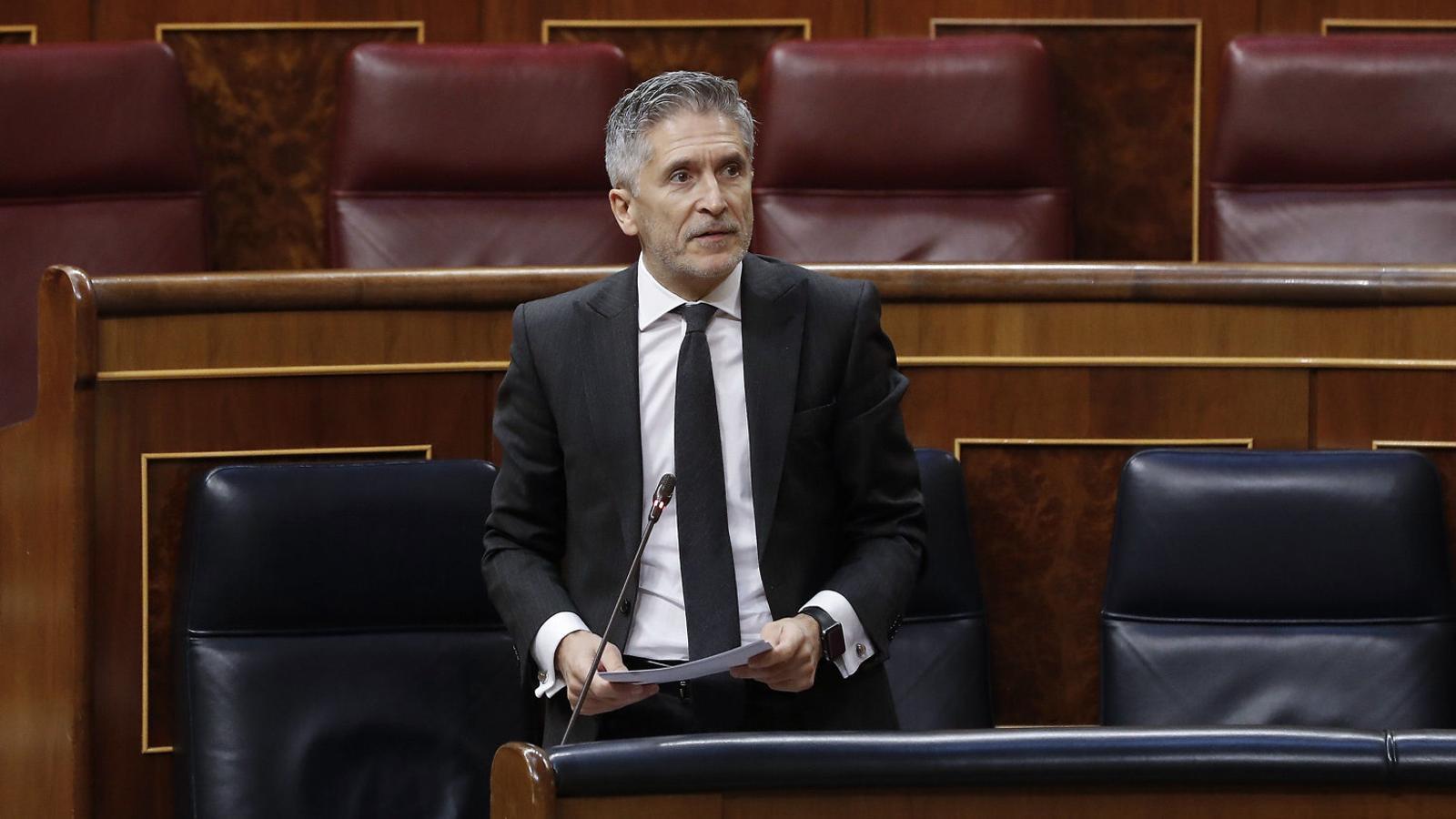

Last week the repatriation of unaccompanied migrant children to Morocco, who had been in Ceuta for almost three months, began. The Minister of Home Affairs, Grande-Marlaska, says that they are minors who want to return to their country and that they are not expulsions but "assisted returns". The minister can use all the euphemisms he wants but he is finding it hard to pass off his actions as legal - or even fair.
It is an outcry. The UN, the ombudsman, more than thirty NGOs and even the Bishops' Conference have called for their suspension. The juvenile prosecutor's office has requested information and the National High Court has to issue a ruling on their legality. There is evidence that they are not being given individual attention to determine whether they need protection, nor have they had access to lawyers or sufficient information.
What they want doesn't seem to count, but hearing why some of them risked their lives to get here is the least we could offer them. According to Save the Children, many of them are fleeing beatings, forced marriages, sexual abuse and exploitation, poverty or simply looking for other ways to live. If the return were voluntary in all cases, why are there many who have escaped from reception centres and have preferred to sleep on the street or in the mountains?
Grande-Marlaska is therefore speaking against reality. The government has tried to make it look like an operation of an overly rigorous minister acting on his own. This way, they would not have to face their own political decisions on a difficult issue that calls their "progressive" mood into question. At some point they would replace the minister and we could turn the page until the next "crisis". But this time it hasn't worked for them.
The truth is that the issue of migrant minors puts to the test all EU's rhetoric of respect for human rights, that which is activated as a mechanism of superiority over other nations and has even been used to justify military interventions. Today we are publicly outraged by the oppressive horizon that awaits Afghan women and girls. However, when they arrive here, refugee camps like Moira await them, where sexual assault and violence are commonplace, life is worth little and hope is not long either. In these camps, suicide attempts by minors are commonplace. In Spain, too, the centres for the homeless are full of applicants for protection who have not yet been attended to and of people whose applications have been rejected. No, despite all the rhetoric, refugees are not protected and there is no law for migrant children, who are not considered children, but a "threat".
Already in recent months, the image of homeless children had become a daily occurrence in Ceuta or the Canary Islands. Children and teenagers afraid of being sent back, fleeing from the police - until recently also from the military. Others preferred to wander than to be locked up in emergency shelters, sports centres and even industrial warehouses, where hundreds of them who arrived here last May were crammed together. But it doesn't take an exceptional situation for us not to know what to do with them. This issue has become a hot topic for the extreme right but Vox only instrumentalises the consequences of leaving these minors abandoned and extutelated.
Just recently Grande-Marlaska himself has opposed facilitating their access to residency and work permits to live and work because this would encourage "millions" of young people to emigrate. The truth is that without papers, what possibilities await them? What will they have to do to survive? In its day the government harshly criticised Vox's electoral poster that criminalised unaccompanied minors, but for now their policies say exactly the same thing: they are not welcome. The framework has been in place for years. Migration policies are not made for migrants, but calculating every vote that can be lost by being too "permissive". There is a certain consensus that the migrants wanted are instant workers whose reproduction costs have been assumed by other nations and by other women. Migrant children are a problem because they have to be paid to become labour. Meanwhile, we use them as a metaphor for a Europe besieged by hordes of migrants on the verge of assaulting us, and with that fear, we make the extreme right grow.
